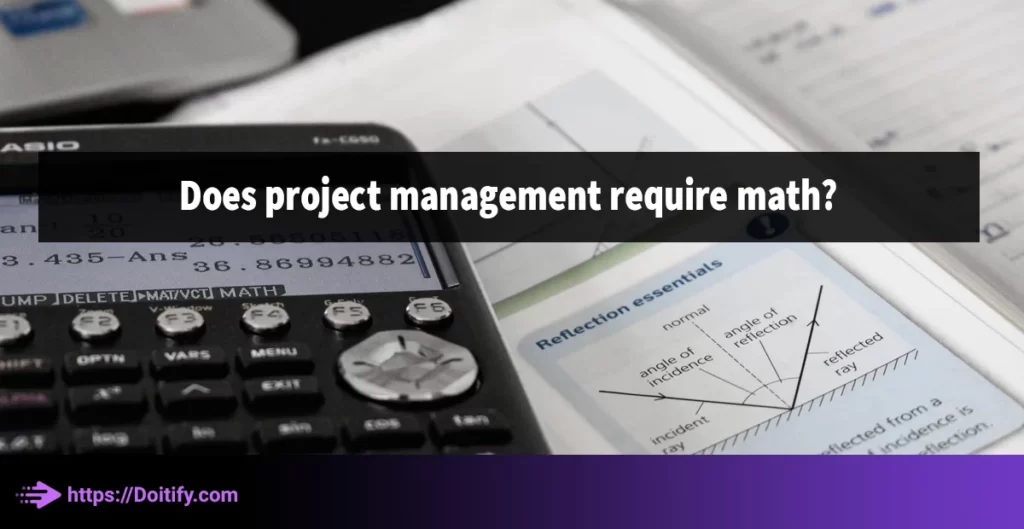Does Project Management Require Math?
“The world of project management is often seen as a blend of creativity, leadership, and communication skills. While these skills are undoubtedly crucial for project success, it’s also important to acknowledge the role of mathematics in this field.”

Comprehensive Answer: Does Project Management Require Math?
The answer is yes, but not in the traditional sense that you might be thinking of. Project management doesn’t demand complex calculus or advanced statistical analysis. Instead, it’s about applying basic math concepts to practical problems that arise during the project lifecycle.
Here are some specific examples of how math is used in project management:
- Cost Estimation: Project managers need to estimate the costs associated with labor, materials, equipment, and other expenses. This requires basic arithmetic and an understanding of cost-estimating techniques.
- Scheduling: Project managers use scheduling techniques to determine the sequence and duration of tasks, ensuring that the entire project is completed within the specified time frame. This often involves applying concepts like critical path analysis and resource allocation.
- Risk Management: Project managers need to assess and manage risks that could impact the project’s success. This requires understanding probability and statistics to evaluate potential risks and develop mitigation strategies.
- Data Analysis: Project managers gather and analyze data throughout the project lifecycle to track progress, identify trends, and make informed decisions. This involves using basic data analysis tools and techniques.
How Much Math Does a Project Manager Need to Know?
The level of math expertise required for project management varies depending on the specific project and the industry. However, a solid understanding of basic math concepts is essential for any project manager.
Here are some recommendations for the level of math skills that project managers should have:
- High School Math: A strong grasp of arithmetic, algebra, and geometry is essential for most project management tasks.
- Statistics: A basic understanding of statistics, including descriptive statistics and probability, is helpful for risk management and data analysis.
- Financial Math: Some project managers may need to have a basic understanding of financial concepts, such as budgeting and cost accounting.
Project Management Tools to Help With Math
In today’s technology-driven world, there are numerous project management tools that can assist with math-related tasks. These tools can help with cost estimation, scheduling, risk assessment, and data analysis, making it easier for project managers to apply math in their work.
Project management is not just about creativity and leadership; it also requires a strong foundation in math. By understanding and applying basic math concepts, project managers can make better decisions, manage risks more effectively, and ultimately deliver successful projects.
Other Doitify pages on project management:
- Project Management Software
- Project Management Tool
- Construction Project Management Software
- Personal Project Management Tool
- Project Management Tool For Teams
- Project Management Tools For Small Teams
- Enterprise Project Management Tools
- Free Project Management Tools



